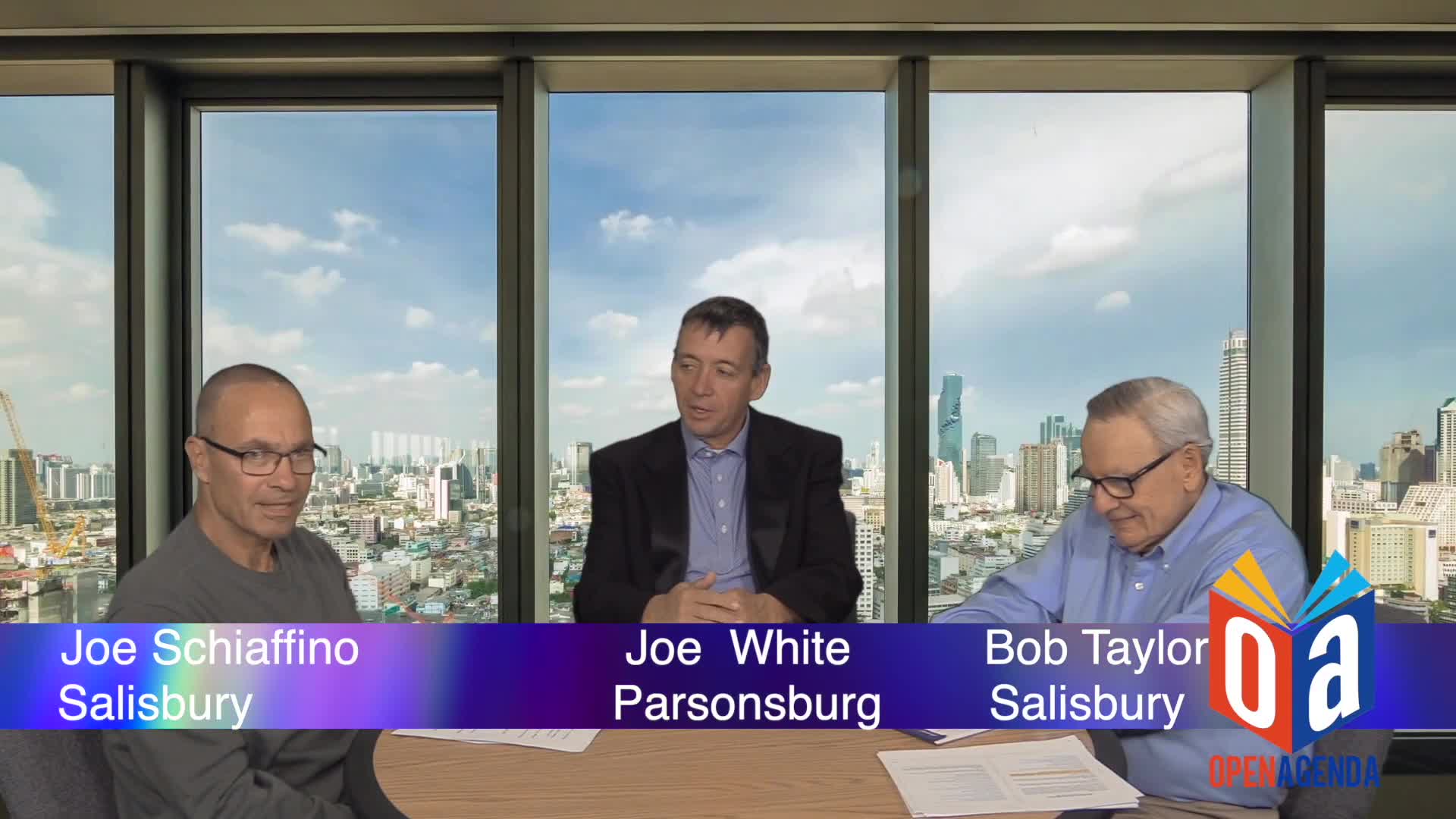Freedom From Religion Foundation demands change after Wicomico County council readings of the Lord’s Prayer and Bible passages
Get AI-powered insights, summaries, and transcripts
Subscribe
Summary
A complaint and a follow-up letter from the Freedom From Religion Foundation allege Wicomico County council members crossed the line by reading the Lord’s Prayer and five Bible passages during meetings; local residents and legal observers on Open Agenda discussed Fourth Circuit precedent and possible council responses.
Open Agenda — A complaint from a Salisbury resident and a follow-up letter from the Freedom From Religion Foundation have put Wicomico County council prayer practices under scrutiny after council members read the Lord’s Prayer and, on one occasion, five Bible passages during public meetings.
On the program, paralegal Joe Scofino said he began attending county council meetings about a year ago and filed a diplomatic letter to all seven council members after Councilman James Wynne read five Bible passages at the end of a meeting. "He read five passages. And then he said, you know, the Bible is the only way and that he knows when I not everybody's Christian, but he's gonna pray for us," Scofino said. After his initial letter produced no change, Scofino said he contacted the Freedom From Religion Foundation; the group then sent a letter addressed to County Council President Cannon, with copies to all seven members.
Retired attorney Bob Taylor, a guest on the show, summarized relevant legal precedent cited by the complainants and the Freedom From Religion Foundation. Taylor said that, in the Fourth Circuit, courts have distinguished clergy-led invocations from prayers read by elected officials and that several lower-court decisions have held that prayers read by council members in the council’s intimate meeting setting constitute government speech and can violate the Establishment Clause. "Reading the Lord's Prayer at a council meeting when it's read by the council or the council president is unconstitutional under the First Amendment," Taylor said, summarizing the line of Fourth Circuit decisions he cited.
Taylor and Scofino discussed the difference between invocations delivered by an invited chaplain and a prayer read or led by the presiding elected official. Taylor noted the U.S. Supreme Court has allowed legislative prayer in some circumstances involving invited clergy (citing Town of Greece v. Galloway), but that the Supreme Court has not ruled on the precise question presented in several Fourth Circuit rulings where council members themselves read prayers. "There have been two Supreme Court cases dealing with what we call legislative prayer, but they've both been by chaplains," Taylor said. He pointed to Fourth Circuit follow-on decisions (discussed on the program) that limit elected-official led prayers at local legislative meetings.
Public comment on the show reflected community divisions. Student Colin Mcgevers told the program he did not see a problem and referenced Town of Greece v. Galloway as supporting invocations at public meetings; Taylor and Scofino responded that the Greece decision involved invited chaplains and has been mischaracterized in some local discussion. On the show, residents described the practice as alienating to people of different faiths or no faith: "Wicomico County is around 60% Christian, which means 40% of us aren't," one speaker said.
Panelists discussed options the council could take to reduce legal risk and community friction. Taylor outlined three practical choices that would not require a court ruling: stop council members from reading prayers and instead invite clergy for invocations; use a nonsectarian, council-adopted moment of silence; or take no procedural change and accept the risk of litigation. Taylor warned of legal costs, citing an earlier Maryland case that resolved in a consent agreement and included a $125,000 attorney-fee payment.
Neither the council nor any council member provided a statement on the program. The recorded discussion on Open Agenda does not show the council taking formal action in response to the FFRF letter; Scofino and Taylor described the exchange of letters and the potential for future litigation but did not describe any vote or staff directive taken by the council.
The program also reviewed federal case law referenced by guests and callers, including Everson v. Board of Education, Engel v. Vitale, Abington School District v. Schempp, Town of Greece v. Galloway, American Legion v. American Humanist Association (the Peace Cross case), and Kennedy v. Bremerton School District. Guests said Fourth Circuit decisions (referred to on the program) have governed lower-court outcomes involving council-member-led invocations in jurisdictions inside that appellate circuit.
With the Freedom From Religion Foundation's letter delivered to Council President Cannon and copies to all members, Wicomico County council faces a choice between changing its invocation practice or risking a court challenge. On Open Agenda, both guests urged the council to adopt a clear, neutral policy — such as inviting clergy from a rotating list or using a moment of silence — to avoid legal uncertainty and reduce public division.
